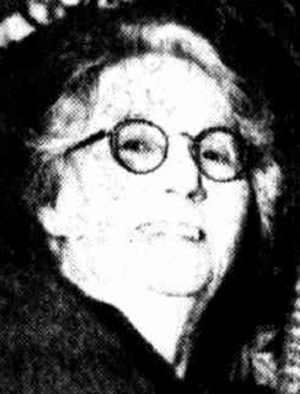Edith Coleman facts for kids
Quick facts for kids
Edith Coleman
|
|
|---|---|
 |
|
| Born |
Edith Harms
29 July 1874 Woking, Surrey, United Kingdom
|
| Died | 3 June 1951 (aged 76) Sorrento, Victoria, Australia
|
| Nationality | Australian |
| Known for | discovery of pseudocopulation in Australian orchids |
| Spouse(s) | James G. Coleman |
| Children | Dorothy Gwynne Coleman and Gladys Winifred Thomson |
| Awards | Australian Natural History Medallion |
| Scientific career | |
| Fields | Natural history |
| Author abbrev. (botany) | E.Coleman |
Edith Coleman (1874–1951) was an Australian naturalist and nature writer who made important observations on pollination syndromes in Australian plant species.
Contents
Early life
Coleman was born Edith Harms on 29 July 1874 in Woking, Surrey. She emigrated with her family to Australia in 1887 and became a school teacher. In 1898, she married James G. Coleman, a pioneering motorist and founder of the RACV. They had two daughters, Dorothy and Gladys and moved to 'Walsham' in Blackburn, Victoria. Many of Coleman's early natural history work was conducted in the garden and bushland surrounding Walsham, as well as their cottage in Healesville and Sorrento, Victoria. She died on 3 June 1951 at Sorrento, Victoria.
Contributions to science
Coleman joined the Field Naturalists Club of Victoria on 11 September 1922. She published over 350 popular and scientific articles from that time onwards in The Victorian Naturalist as well as newspapers and magazines. She made significant scientific contributions to the study of many Australian species, including orchids, mistletoe, spiders, insects, birds and fish as well as papers on herbs, gardening and history.
Coleman's landmark paper on pseudocopulation in orchids resolved a long-standing mystery in orchid pollination which had puzzled many, including Charles Darwin. Her work demonstrated that, instead of producing nectar to attract pollinators, some orchid species mimicked female wasps with scent, visual and tactile cues so effectively that the male wasps were attracted and pollinated the orchids. Her work was republished internationally by Oxford biologist Edward Bagnall Poulton and acclaimed by Harvard entomologist Oakes Ames. She worked with and influenced many naturalists including Rica Erickson, Herman Rupp, Jean Galbraith, and Richard Sanders Rogers who named Prasophyllum colemaniae after her and her daughters.
Coleman was also an enthusiastic promoter of Australian (and English literature) in her writing and was regarded by Kate Baker as one of the foremost figures in Australian literature at the time.
Awards
Coleman was awarded the Australian Natural History Medallion in 1949.
See also
 In Spanish: Edith Coleman para niños
In Spanish: Edith Coleman para niños

